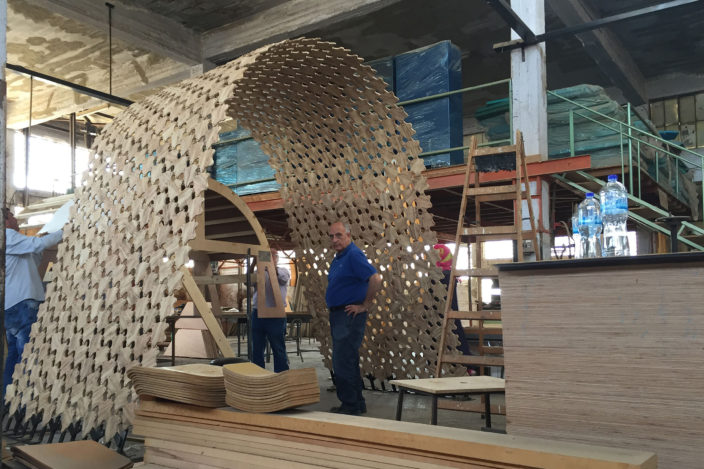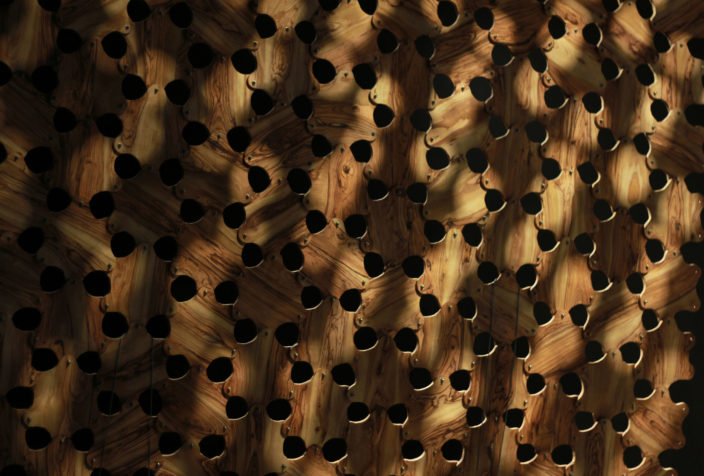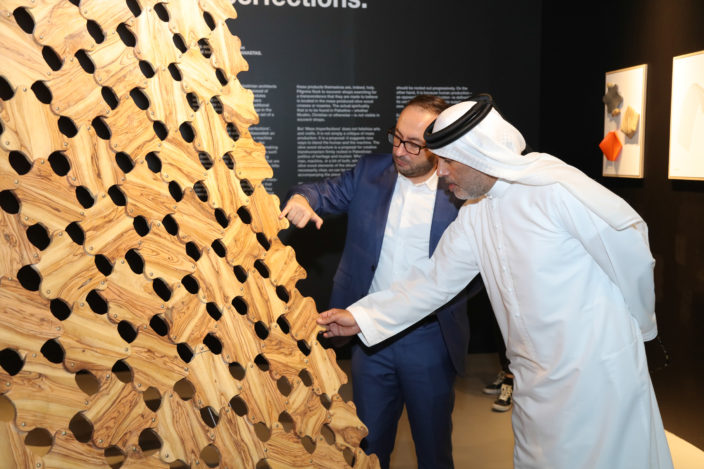‘Mass Imperfections’ by Palestinian architects Elias and Yousef Anastas is composed of several hand-made olive wood modules assembled into a structure that bears resemblance to both a piece of traditional Palestinian embroidery from a village in the hills of Judea and to a prop from the set of a science-fiction film from the 1970.

In order to elaborate ‘Mass Imperfections’, the brothers worked with Luay Nassrallah, an artisan from Beit Jala, who uses a machine to cut the olive wood. In Palestine, the souvenir industry is a sprawling moneymaking machine. Pilgrims are brought into cities such as Bethlehem, and pressured into buying ‘authentic’ or ‘holy’ olive wood trinkets that are often mass-produced elsewhere and have little to do with Palestine.

This industry relies on the possibility of mass-producing cheaply and selling objects that can be presented as local products. If they were produced in a holy land, it follows that these products themselves are, indeed, holy. Pilgrims flock to souvenir shops searching for a transcendence that they are made to believe is located in the mass-produced olive wood crosses or rosaries. The actual spirituality that is to be found in Palestine – whether Muslim, Christian or otherwise – is not visible in souvenir shops.
But ‘Mass Imperfections’ does not fetishize arts and crafts. It is not simply a critique of mass production. It is a proposal: it suggests new ways to blend the human and the machine. The olive wood structure is a proposal for creative transhumanism firmly rooted in Palestinian politics of heritage and tourism. Whether it is man, machine, or a bit of both, who made the olive wood elements of the structure is not necessarily clear, as can be seen in the videos accompanying the piece.

‘Mass Imperfections’ reintroduces human error as a fundamental element of creativity. Mass production considers errors as something that should be rooted out progressively. On the other hand, it is because human production – as opposed to mass production –is defined by its unreliability that it can create surprise and awe.
Errors are embedded in human production. They are not a pathology that needs to progressively disappear. The structure takes its cues from computer art. The glitch is at the basis of its creative process: temporary malfunctions of machines trigger unheard of ways of seeing reality. The structure, in fact, is a constellation of glitches. It celebrates humanity in its mass imperfections. It should stand as a reminder of what Palestine has to offer to the world: an imperfect, yet electrifying, blend of traditionalism and sci-fi dreams.
By Karim Kattan
